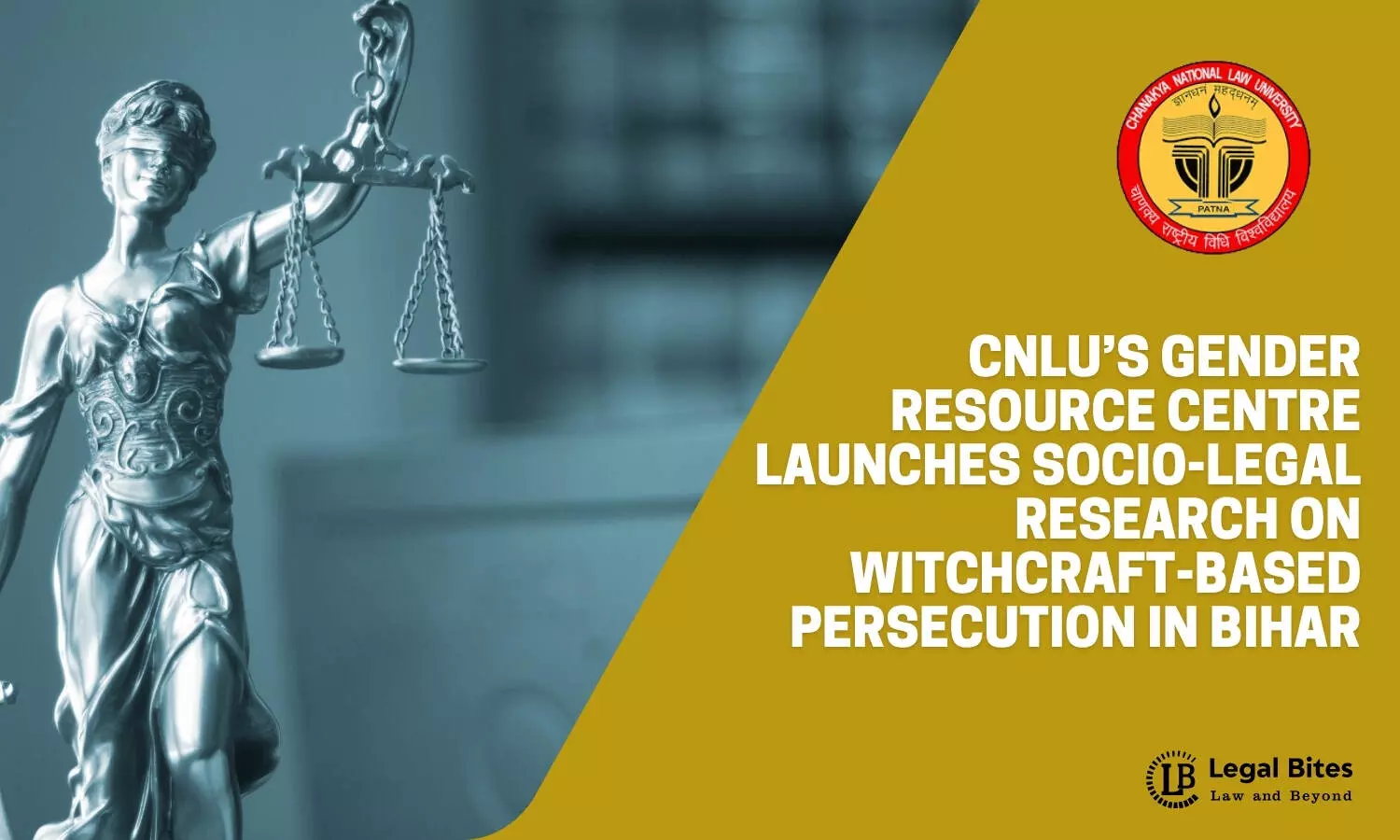CNLU’s Gender Resource Centre Launches Socio-Legal Research on Witchcraft-Based Persecution in Bihar
CNLU’s Gender Resource Centre launches a bold socio-legal study to combat witchcraft-based persecution in Bihar—scroll down to read more!

On July 9, 2025, the Gender Resource Centre (GRC) of Chanakya National Law University (CNLU), Patna, convened an emergency meeting in response to the brutal killing of five family members in Bihar’s Purnia district. The victims were reportedly burnt alive over allegations of witchcraft, highlighting the deeply entrenched superstitions and gendered violence still persisting in rural India.
This tragic event prompted an immediate academic and social inquiry. The meeting, chaired by Prof. (Dr.) Faizan Mustafa, Hon’ble Vice Chancellor of CNLU, brought together core team members of the Gender Resource Centre to chart a research-led response.
Vice Chancellor Emphasises Evidence-Based Reform
In his opening remarks, Prof. Mustafa condemned the heinous incident and underscored the urgent need for a comprehensive understanding of the socio-cultural factors that perpetuate such violence.
“Although laws establish parameters for acceptable conduct within society, their efficacy is often constrained without shifts in social attitudes, cultural practices, and support systems,” said Prof. (Dr.) Faizan Mustafa.
He stressed the role of evidence-based research in addressing the underlying causes of witchcraft persecution. According to him, fear of the supernatural, gender prejudice, and religious beliefs together create an environment ripe for such accusations, making legal reform alone insufficient without a concurrent shift in social consciousness.
Disturbing Data Underscores the Crisis
Adding further urgency to the proposed research, Prof. P.P. Rao, Associate Professor of Law at CNLU, pointed to alarming figures:
- Over 2,500 women were killed in India between 2000 and 2016 due to witchcraft-related accusations, according to the National Crime Records Bureau (NCRB).
- A 2023–24 survey by Nirantar Trust estimated that around 75,000 women in Bihar face the threat of being labeled as a "daayan" (witch).
These figures signal a structural problem affecting women—especially those from marginalized communities—in the name of tradition and superstition.
Proposed Study to Examine Bihar’s Witch Practices Law
Dr. Ayushi Dube, Assistant Professor (Research) and Director of the Gender Resource Centre, proposed a socio-legal study to assess the effectiveness of the Bihar Prevention of Witch Practices Act, 1999. She emphasized the need for a holistic analysis that accounts for intersecting social factors such as gender, caste, class, and religion.
“The study will not only evaluate the law’s implementation but also aim to document lived experiences, institutional responses, and grassroots resistance to such violence,” said Dr. Dube.
The project seeks to generate actionable insights that can support better legislation, community engagement, and rehabilitation mechanisms for affected individuals.
Faculty Call for Community-Oriented Research
Dr. Fr. Peter Ladis F., Assistant Professor of Law, noted that empirical research is key to bridging the gap between legal protections and societal realities. He urged that any meaningful reform must come from an understanding of localized beliefs and power structures that allow such brutal practices to continue unchecked.
The meeting also involved valuable inputs from other GRC members who expressed strong commitment toward advancing gender equity and eradicating superstitions through rigorous fieldwork, community partnerships, and legal scholarship.
Collaborative Way Forward
The meeting concluded with a collective resolve to move ahead with the proposed research project. The GRC plans to collaborate with stakeholders, including:
- State government departments
- Funding agencies
- Legal aid organizations
- Non-governmental organizations (NGOs)
- Grassroots activists and community leaders
These partnerships will help ensure comprehensive data collection, context-sensitive recommendations, and impactful policy interventions. The project aims not only to create academic output but also to serve as a foundation for advocacy and institutional reform at both state and national levels.
Conclusion: Law Alone is Not Enough
The Gender Resource Centre's initiative reflects a proactive academic response to a pressing social issue. With superstition-fueled gender violence still claiming lives, especially in rural India, this research promises to bring to light the lived realities of women targeted under the guise of witchcraft.
By blending legal analysis with on-ground social research, CNLU’s Gender Resource Centre hopes to contribute meaningfully to gender justice, human rights, and community-based reform in Bihar and beyond.

